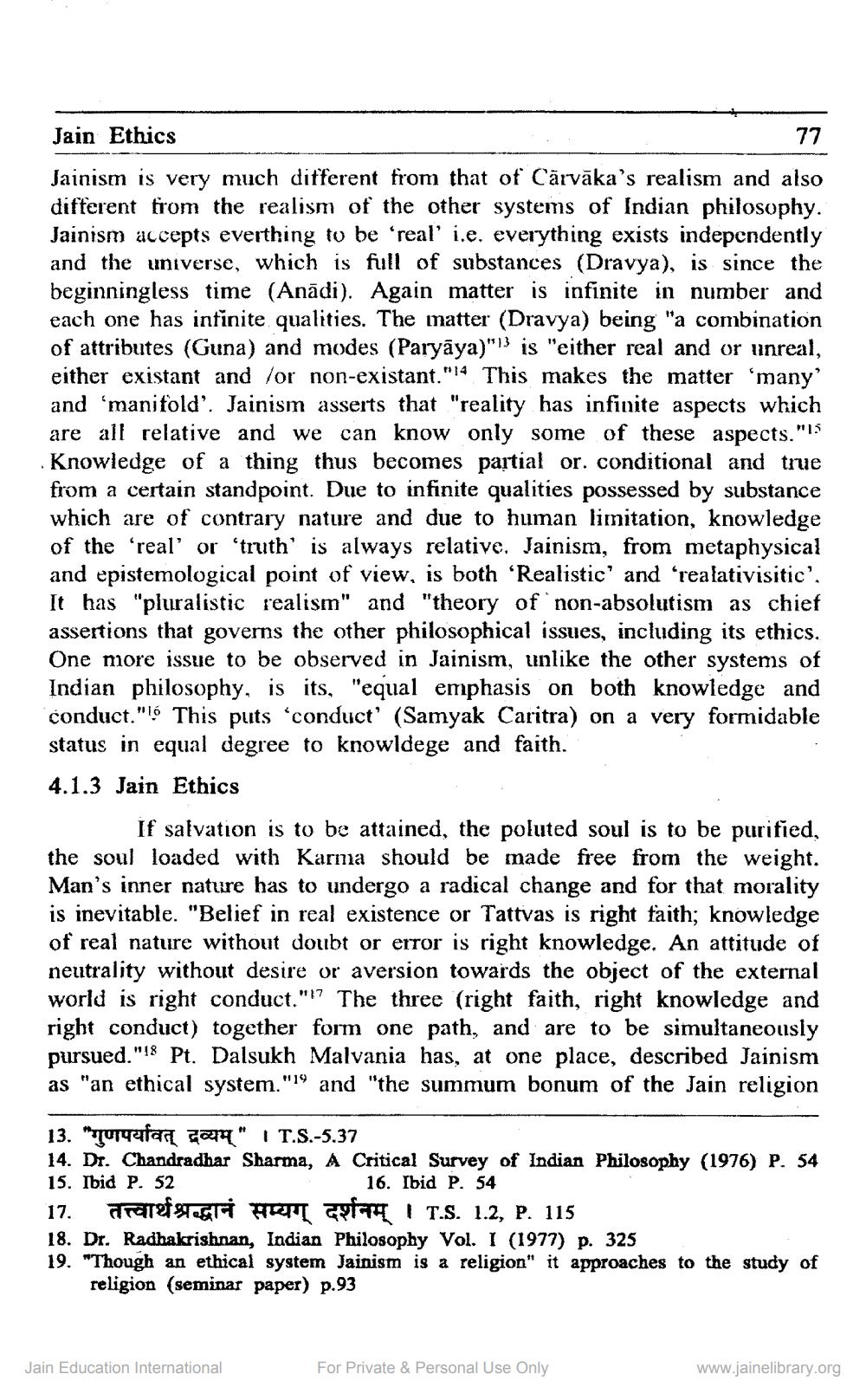________________
Jain Ethics
77 Jainism is very much different from that of Cārvāka's realism and also different from the realism of the other systems of Indian philosophy. Jainism accepts everthing to be 'real' i.e, everything exists independently and the universe, which is full of substances (Dravya), is since the beginningless time (Anādi). Again matter is infinite in number and each one has infinite qualities. The matter (Dravya) being "a combination of attributes (Guna) and modes (Paryāya)")} is "either real and or unreal, either existant and /or non-existant."?4 This makes the matter 'many' and 'manifold'. Jainism asserts that "reality has infinite aspects which are all relative and we can know only some of these aspects."15 Knowledge of a thing thus becomes partial or. conditional and true from a certain standpoint. Due to infinite qualities possessed by substance which are of contrary nature and due to human limitation, knowledge of the 'real' or 'truth' is always relative. Jainism, from metaphysical and epistemological point of view, is both 'Realistic' and 'realativisitic'. It has "pluralistic realism" and "theory of non-absolutism as chief assertions that governs the other philosophical issues, including its ethics. One more issue to be observed in Jainism, unlike the other systems of Indian philosophy, is its, "equal emphasis on both knowledge and conduct."ló This puts 'conduct' (Samyak Caritra) on a very formidable status in equal degree to knowldege and faith. 4.1.3 Jain Ethics
If salvation is to be attained, the poluted soul is to be purified, the soul loaded with Karma should be made free from the weight. Man's inner nature has to undergo a radical change and for that morality is inevitable. "Belief in real existence or Tattvas is right faith; knowledge of real nature without doubt or error is right knowledge. An attitude of neutrality without desire or aversion towards the object of the external world is right conduct."7 The three (right faith, right knowledge and right conduct) together form one path, and are to be simultaneously pursued."18 Pt. Dalsukh Malvania has, at one place, described Jainism as "an ethical system."14 and "the summum bonum of the Jain religion
13. "quietar zamy" | T.S.-5.37 14. Dr. Chandradhar Sharma, A Critical Survey of Indian Philosophy (1976) P. 54 15. Ibid P. 52
16. Ibid P. 54 17. Tratef staari Hell gytam 1 T.S. 1.2, P. 115 18. Dr. Radhakrishnan, Indian Philosophy Vol. I (1977) p. 325 19. "Though an ethical system Jainism is a religion" it approaches to the study of
religion (seminar paper) p.93
Jain Education International
For Private & Personal Use Only
www.jainelibrary.org




